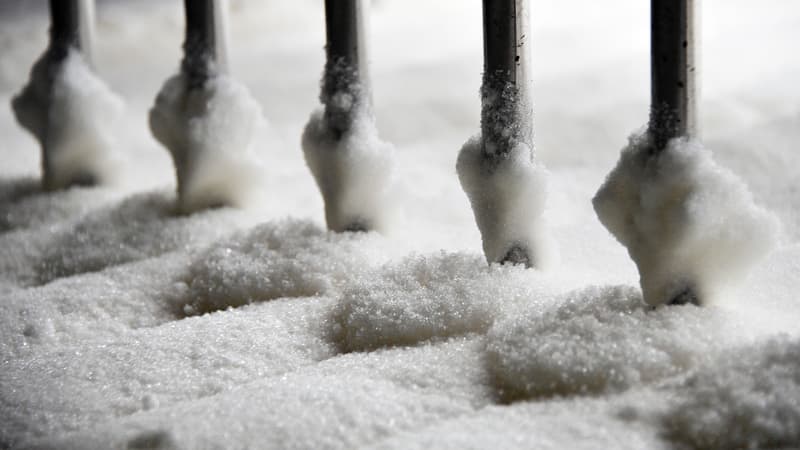France produced 4.58 million tons of beet sugar during the 2024-25 campaign, a 9.5% production that allows it to stay first in Europe, the sugar of cultures.
During the last campaign, “32.9 million tons of sugar beets” were harvested in more than 411,000 hectares worked by 23,000 planters, mainly in the north of the country, according to a press release from sugar crops, the association that gathers planters and manufacturers.
In addition, “almost 2 million tons of sugarcane” (which can give around 174,000 tons of cane sugar) were harvested in foreign departments and regions (DROM) during the campaign, with 35,220 hectares.
With these volumes, France is closer to its 2019-20 level (4.9 million tons of sugar), the level of production that precedes the terrible year of 2020 that had seen the French harvest fall almost one third after an epidemic of beet jaundice. That year considered “catastrophic at all levels” by the profession, the production was established at 3.4 million tons, which led to the loss of 600 and 700 million euros of added value.
These actions are even more notable, for sugar cultures, since they are part of “a generally unfavorable economic, climate and international context.”
A toxic neonicotinoid pesticide
Among these “main challenges”: the management of climatic whims, with this year a particularly dry time in the production regions that are successful in a year too rainy, the reduction in the quantity of factories, with today 20 sweets in France against 25 in 2019-20, and the need to decarbone, which “pushes the sector to innovate and invest in the investigation to stay competitive.”
The planters, who also complain about the “regulatory pressure” and the “technical dead ends”, have obtained derogatory re -authorization in France from Acetamipride, a toxic neonicotinoid pesticide for pollinators, with the recent adoption of the so -called Dupil Law.
This product is authorized in Europe until 2033 and farmers estimate an unfair competition of their European neighbors. Its reutory under conditions in France will only be effective if the Constitutional Council, recently seized, validates the law in the coming weeks.
For Philippe Reiser, general director of Sugar cultures, it is “essential to maintain this agricultural and industrial activity that allows our country to benefit from a sovereignty asset that is so much food (sugar, pulp for reproduction), energetic (bioethanol) and health (Hydroalcoholic gels)”.
Source: BFM TV


